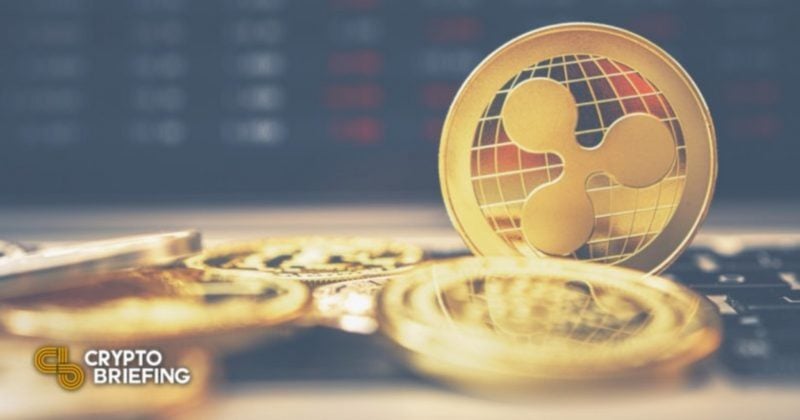ARTICLE AD
The rate decisions are set to impact global markets this week.

Key Takeaways
BOJ, Fed, and BOE are making crucial rate decisions this week. Global markets anticipate the impact of these central bank policies. <?xml encoding="UTF-8"?>The US Federal Reserve is set to announce its decision regarding interest rates this Wednesday afternoon at around 2PM EDT.
As it stands, the Fed is not expected to announce cut rates just now. Come September, however, the CME FedWatch tool predicts a 4.1% chance of eased rates, as implied by 30-day futures prices. This probability is configured alongside a 12 to 13.8% chance of trimming basis points by 50 basis, instead of the usual 25.
This news comes with the recent dip in the consumer price index (CPI) in the US last June which brought the crypto market up after showing moderate inflation numbers at 3.3% year-on-year. Bets on Polymarket for the July 2024 decision show “No Change” at 96% odds.
However, whether the Federal Open Market Committee (FOMC) ultimately decides to hike or cut rates, a positive outcome for crypto is still predicted. A rate hike would mean a slower but steady improvement. A rate cut, on the other hand, would be bullish, given how lower interest rates typically reduce the cost of borrowing, encouraging more investment and liquidity in riskier assets like crypto. Additionally, lower rates have a tendency to weaken the fiat currencies, potentially driving investors to seek alternative stores of value such as crypto.
At the time of writing, Bitcoin is changing hands at $65,600 level and continues its wobbling over the past month while equities remain resilient. But with the possibility of rate cuts come September, all directions point to a likely favorable outcome for crypto.
Divergent decisions: US, Japan and the UK
The Bank of Japan, Federal Reserve, and Bank of England are set to announce interest rate decisions this week, with analysts expecting divergent outcomes from each central bank.
The Bank of Japan (BOJ) will lead off on Wednesday, with analysts split on whether it will raise rates from the current 0%-0.1% range or signal an imminent hike. Japan’s inflation has remained above the bank’s 2% target, while the yen hovers near multi-decade lows against the US dollar. The Wall Street Journal reported that the BOJ believes tighter monetary policy could boost sluggish consumption by strengthening the yen and easing import prices.
The Federal Reserve is expected to hold rates steady at its Wednesday meeting, but markets anticipate a clear signal of a rate cut at the next meeting in September. CME FedWatch data shows 100% odds for a September rate cut, with a 12% chance of a 50 basis point reduction instead of the typical 25 basis points.
On Thursday, the Bank of England (BOE) faces a closely watched decision, with economists and markets split roughly 50/50 on whether it will cut rates for the first time in several years. Even if the BOE does ease, it’s likely to indicate a cautious approach to future cuts.
These central bank decisions come amid a broader trend of monetary easing among major economies. The European Central Bank and Bank of Canada have already implemented rate cuts in recent months, signaling a shift from the multi-year tightening cycle.
For the crypto market, particularly Bitcoin, the impact of these decisions may be limited in the short term, barring any significant surprises. However, the long-term trend towards easier monetary policy could potentially benefit risk assets like Bitcoin. This 56% year-to-date rally, while largely attributed to demand from US-based spot ETFs, may also reflect market anticipation of this easing cycle.
Government entity moves Bitcoin right before FOMC decision
The Federal Reserve’s upcoming interest rate decision comes days after a DOJ entity moved $2B worth of Bitcoin, present an intriguing juxtaposition in the financial and economic spheres. While the Fed is expected to hold rates steady and signal future cuts, potentially boosting risk assets like Bitcoin, the DOJ’s large-scale transfer of seized crypto assets introduces an element of uncertainty into the market.
The timing of the DOJ’s Bitcoin movement, just ahead of the Fed’s announcement, raises questions about potential coordination or coincidence. If the Fed’s decision aligns with market expectations of a dovish outlook, it could offset any negative pressure on Bitcoin’s price caused by fears of government selling.
Conversely, if the Fed surprises with a more hawkish stance, it could compound any market jitters resulting from the DOJ’s actions. This situation highlights how government actions across different domains – from monetary policy to law enforcement – may have interconnected effects on the crypto market.
Disclaimer
 4 months ago
25
4 months ago
25 


